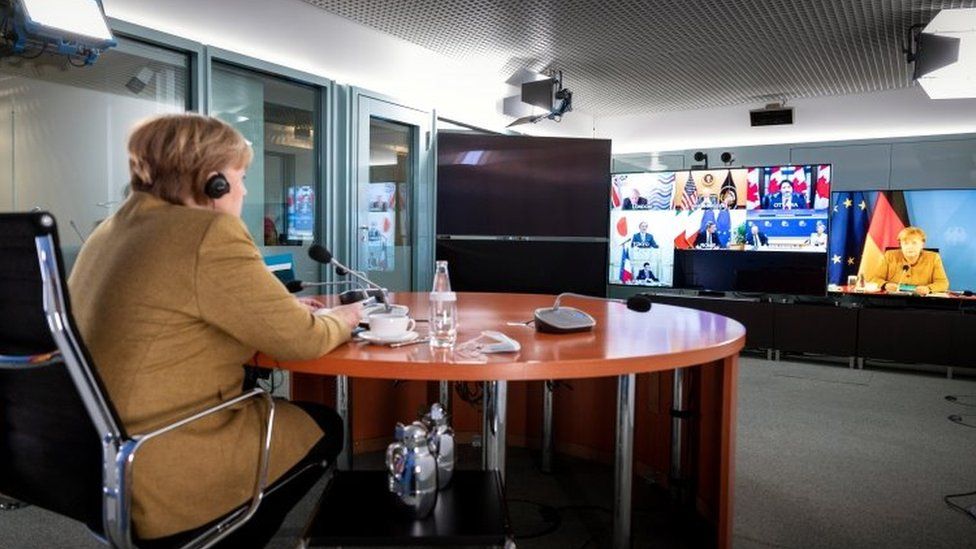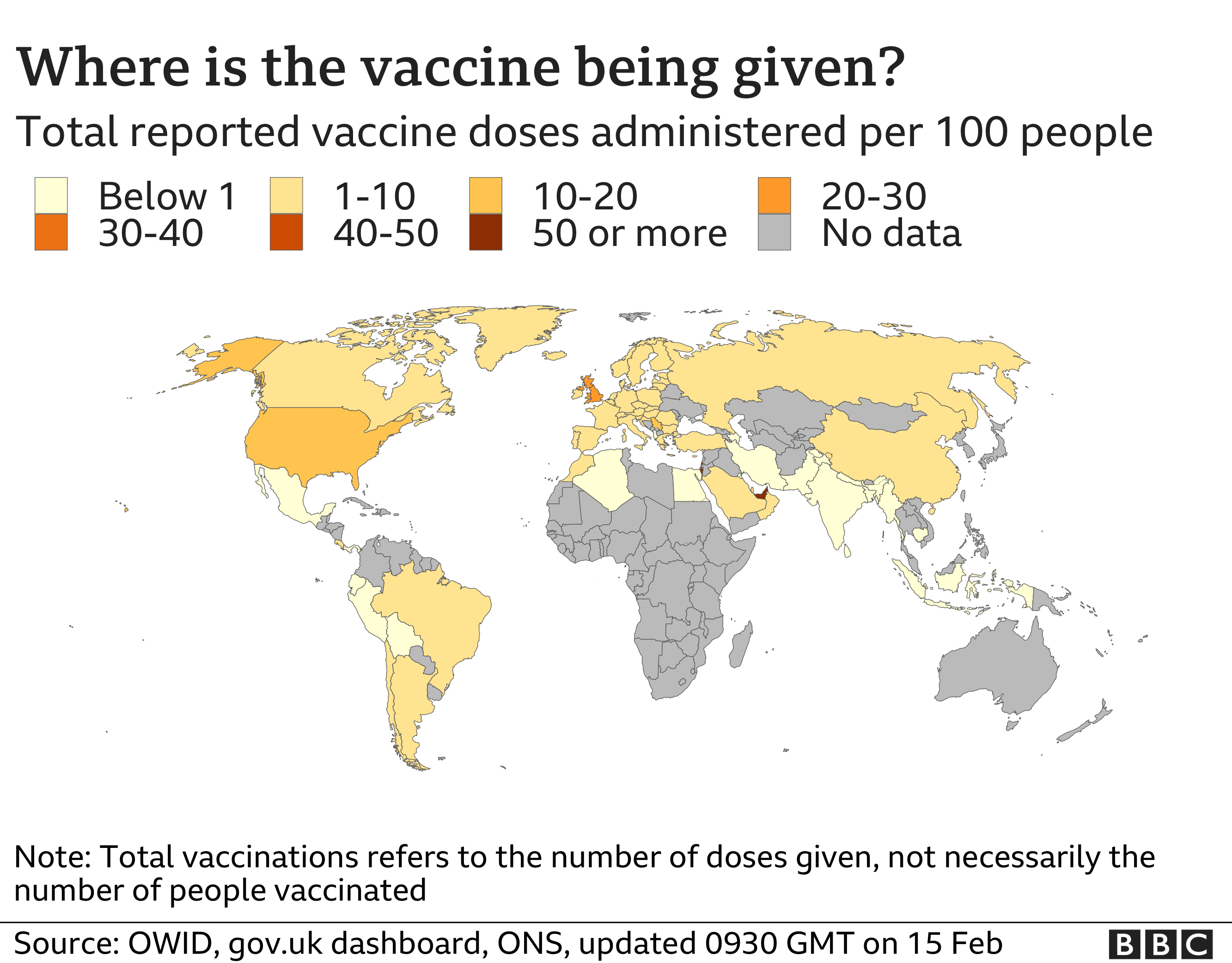Covid vaccines: G7 increase support for Covax scheme
 image copyrightReuters
image copyrightReutersG7 leaders have pledged to intensify co-operation on Covid-19 and increase their contribution to the Covax vaccine-sharing initiative.
In a joint statement released after a virtual summit on Friday, G7 leaders raised their overall commitment to $7.5bn (£5.3bn).
Wealthy countries are facing growing pressure to make sure lower-income nations get fair access to vaccines.
President Joe Biden has pledged $4bn in US aid to the fund.
An initial $2bn will be donated in 2021, with an additional $2bn coming over the next two years.
Germany pledged an additional $1.2bn with Chancellor Angela Merkel telling journalists: "I stressed in my intervention that the pandemic is not over until all people in the world have been vaccinated."
The EU also increased its commitment on Friday.
Covax is co-led by Gavi, known as the Vaccine Alliance, the World Health Organization (WHO) and the Coalition for Epidemic Preparedness Innovations (CEPI).
WHO chief Tedros Adhanom Ghebreyesus said on Friday he was grateful for the new commitments but emphasised that more was needed to address the world's vaccination imbalance.
"Vaccine equity is not just the right thing to do, it's also the smart thing to do," he said at the annual Munich Security Conference, also held virtually on Friday.
French President Emmanuel Macron is among world leaders calling for further action to address the world's vaccine imbalance - saying Europe and the US should urgently send up to 5% of their supplies to developing nations.
The new commitments come days after UN Secretary General António Guterres criticised the distribution of vaccines so far as "wildly uneven and unfair".
He said just 10 countries had administered 75% of all vaccinations worldwide, while 130 countries had not yet received a single dose.

Friday's online meeting was the first gathering of G7 leaders since April 2020, and the first international meeting for new US President Joe Biden.
Prime Minister Boris Johnson, this year's G7 chair, has said that the UK will donate much of its surplus vaccine supply to poorer nations.
To date, at least 110 million people have been infected with the virus worldwide and more than 2.4 million have died, according to figures from Johns Hopkins University.

A global scramble
Analysis by Naomi Grimley, global health correspondent
In the global scramble to secure vaccines against Covid-19 many wealthy countries - which funded a lot of the research - have ended up buying more supplies than they need.
New figures from the anti-poverty pressure group, the One Campaign, reveal that Australia, Canada, Japan, the UK, the US and the EU have already secured more than 3bn doses - 1.2bn more than they need to give their entire populations two doses.
The UK has also given £548m to Covax - the UN-led attempt to get vaccines out to poorer countries.
But campaigners say they want hard facts on how many actual doses Britain will now be donating to the mechanism.
Some 130 countries in the world haven't done any vaccinations at all and healthcare workers in those countries remain at high risk.
And even if the Covax plan works, it's only designed to cover 20% of each nation's population - far short of the herd immunity expected in wealthy countries.



No comments